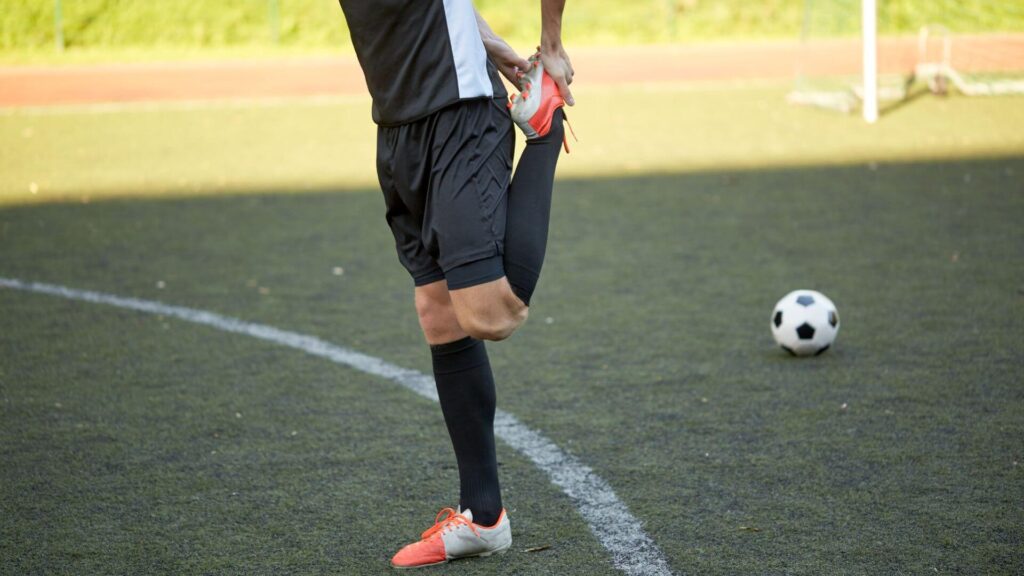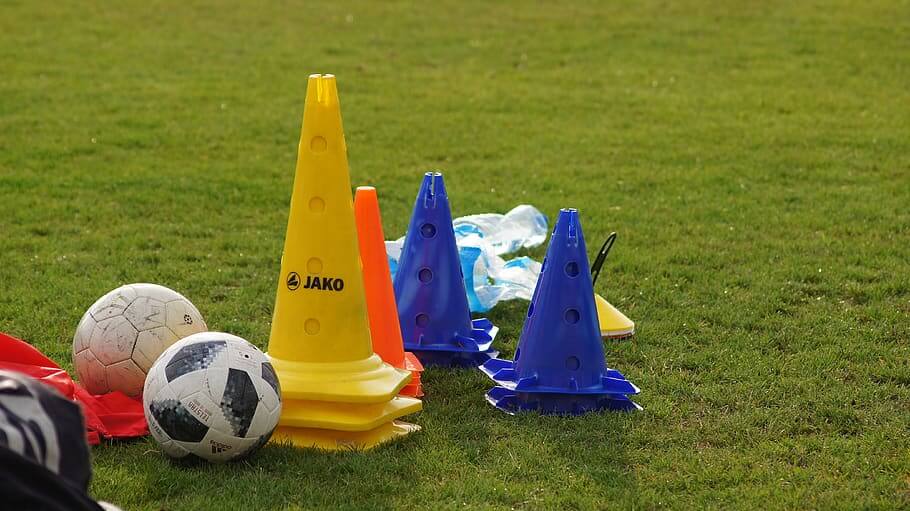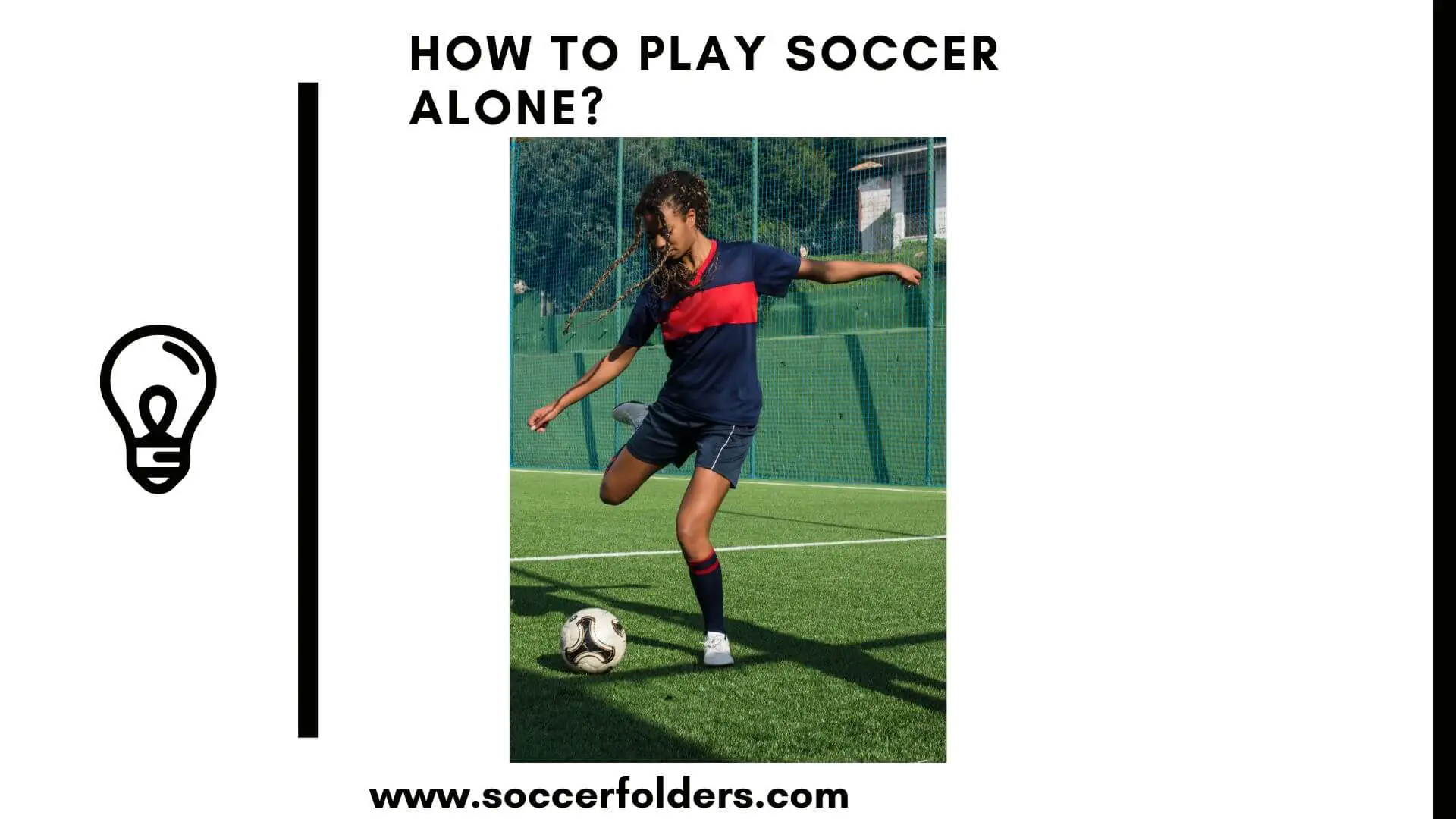How to play soccer alone?
First things first, playing soccer is one of the most popular sports in the world. It’s a great way to improve physical fitness, mental strength, and social skills.
But what if you don’t have anyone to play with? Can you still enjoy this fantastic sport? The answer is yes! You can play soccer alone and still have a great time while improving your skills.
In this article, we will provide a step-by-step guide on playing soccer alone and making the most out of your practice sessions.
Let’s get started.
Quick Navigation
How to Play Soccer Alone?
To play soccer alone, you can follow these steps:
- Find a suitable playing surface: Look for an open space with a flat surface where you can practice without obstacles or hazards. A backyard, park or sports field can be a good option.
- Get the right equipment: You’ll need a soccer ball to practice your skills. Make sure it’s the right size and weight for your age and skill level.
- Warm-up: Before you start playing, it’s important to warm up your muscles to prevent injury. Do some stretches, jog around or do some quick footwork drills.
- Practice basic skills: Basic skills like ball control, passing, and shooting. You can practice these skills by yourself using cones or markers as targets.
- Set up challenges: Once you’ve mastered the basics, challenge yourself with more advanced skills like juggling, dribbling, or shooting accuracy. Use a timer or set a specific target to push yourself further.
- Watch and learn: You can also watch videos of professional soccer players to learn new skills and techniques. Try to replicate what you see and incorporate it into your practice.
- Have fun: Most importantly, remember to have fun while playing soccer alone. It’s a great way to improve your skills and stay active.
Let’s break this list down so you understand better.
1. Find a suitable playing surface
The first step to playing soccer alone is to find a suitable playing surface.
You need an open space with a flat surface where you can practice without any obstacles or hazards. A backyard, park, or sports field can be a good option.
Look for a place that is large enough for you to move around freely and practice different skills.
2. Get the right equipment
Once you’ve found a suitable playing surface, you need to get the right equipment.
You’ll need a soccer ball to practise your skills. Make sure it’s the right size and weight for your age and skill level.
The standard ball size for adults is size 5, while kids usually play with size 3 or 4 balls.
If you’re a beginner, start with a lighter ball to make it easier to control.
3. Warm-up
Before you start playing, it’s important to warm up your muscles to prevent injury.
Do some stretches, jog around, or do some quick footwork drills.

A good warm-up routine can help you prepare mentally and physically for the practice session ahead.
Make sure you spend at least 10-15 minutes warming up before you start playing.
4. Practice basic skills
Start with basic skills like ball control, passing, and shooting.
These skills are essential for any soccer player, and practising them alone can help you improve your technique.
You can practice these skills by yourself using cones or markers as targets.

Set up a course and dribble through it, or practice passing against a wall.
Make sure you practice both feet to improve your overall control and balance.
5. Set up challenges
After you’ve mastered the basics, challenge yourself with more advanced skills like juggling, or shooting accuracy.
Use a timer or set a specific target to push yourself further.
You can try juggling the ball as many times as possible without dropping it or shooting at a specific target from a certain distance.
Make sure you challenge yourself enough to keep improving, but not too much that you get frustrated and lose motivation.
6. Watch and learn
You can also watch videos of professional soccer players to learn new skills and techniques.
Try to replicate what you see and incorporate it into your practice.
Watching professional players can also help you improve your tactical understanding of the game. Pay attention to their movements, positioning, and decision-making to improve your own game.
However, don’t compare yourself to professional players as they have years of experience and training under their belt.
7. Have fun
Most importantly, remember to have fun while playing soccer alone. It’s a great way to improve your skills and stay active.
Don’t put too much pressure on yourself to perform perfectly every time. Mistakes are part of the learning process, and they can help you improve faster.
Try different tricks and techniques, and enjoy the feeling of mastering a new skill.
Celebrate your progress, no matter how small it is.
Tips for staying motivated and avoiding burnout when practising alone
Practising alone can sometimes become repetitive and lead to burnout, which can make it difficult to stay motivated.
Here are some tips to help you stay motivated and avoid burnout when practising alone:
- Set realistic expectations: Be realistic about what you can achieve during each practice session. Set achievable goals and don’t put too much pressure on yourself to perform perfectly every time.
- Mix it up: Incorporate a variety of drills and exercises into your solo soccer practice. This will help prevent boredom and keep things interesting. You can also try practising at different times of the day or in different locations to keep things fresh.
- Join a community: Joining a soccer community, whether it’s online or in-person, can help you stay motivated and connected with other players. You can share your progress, ask for feedback, and get inspired by others.
- Take breaks: Taking breaks during your practice sessions can help prevent burnout and keep you fresh. You can take short breaks to stretch or hydrate, or longer breaks to recharge and refocus.
- Reward yourself: Give yourself small rewards for achieving your goals, such as a favourite snack or a new soccer accessory. This will help keep you motivated and give you something to look forward to.
- Keep it fun: Above all, keep your solo soccer practice fun. Remember why you started playing soccer in the first place and enjoy the process of improving your skills.
How to set goals and measure progress when playing alone
Setting goals and measuring progress is an important aspect of solo soccer practice. It helps you stay focused and motivated, and track your improvement over time.
Here are some tips on how to set goals and measure progress when playing alone:
- Define your goals: Start by defining your short-term and long-term goals. These could be related to specific skills you want to improve, such as dribbling, shooting, or passing, or broader goals such as increasing your stamina or endurance. Be specific and realistic in your goals, and make sure they are achievable.
- Create a plan: Once you’ve defined your goals, create a plan to achieve them. Break your goals down into smaller, actionable steps, and plan how you will work on each step during your solo soccer practice.
- Track your progress: Use a journal or an app to track your progress. This could include things like the number of shots you take, the amount of time you spend practising, or the distance you run. Regularly review your progress and adjust your plan as needed.
- Celebrate your achievements: When you achieve a goal, take time to celebrate your achievement. This will help you stay motivated and reinforce the habit of setting and achieving goals.
- Stay flexible: Remember that progress is not always linear, and setbacks can happen. Be flexible in your approach and adjust your plan as needed. Don’t be too hard on yourself if you don’t achieve a goal right away. Keep practising and stay focused on your long-term goals.
You can also read my full article about goal setting for soccer players here
Final Word
Playing soccer alone can be a great way to improve your skills, stay active, and have fun.
With the right equipment, a suitable playing surface, and a good warm-up routine, you can start practising basic skills like dribbling, passing, and ball control.
Overall, practising soccer alone can be an effective way to improve your skills and become a better player.
By following the tips in this article, you can make the most out of your solo soccer practice and stay motivated along the way.
Remember to set goals, measure progress, mix up your routine, and keep it fun.
Whether you’re a beginner or an experienced player, solo soccer practice can help take your game to the next level.
So, lace up your soccer shoes, grab a ball, and get practising!

